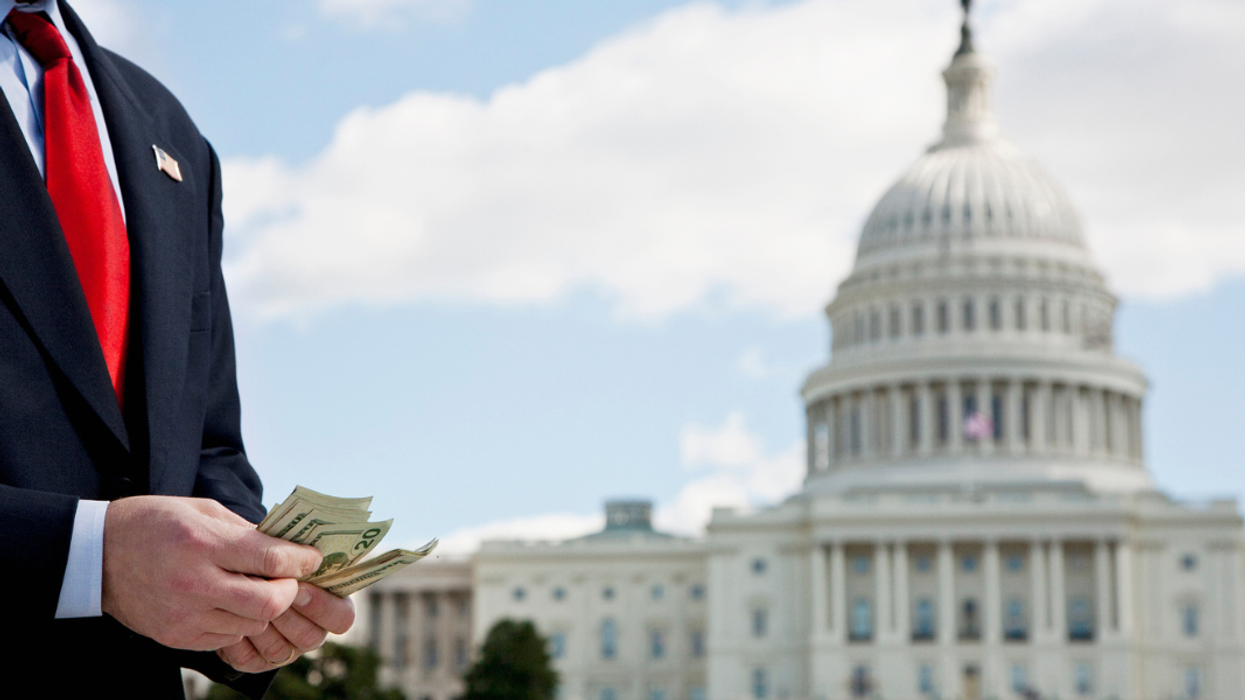Fothergill is the RepresentUs Deputy Mobilization Director.
Each new Congress represents an opportunity for our elected officials to show that they can make life better for the American people. While there are plenty of hot-button issues that sharply divide us, there are just as many issues that have overwhelming bipartisan support. One of those issues is corruption.
Since no one wants there to be more corruption in government, you would think that the new Congress would take this golden opportunity to tackle something that folks across the political spectrum agree upon. But in one of the first votes of the 118th Congress, the Republican majority voted to gut one of the only safeguards the federal government has against corruption: the Office of Congressional Ethics (OCE).
The OCE was created in 2008 following corruption scandal after corruption scandal. A bipartisan task force concluded that the best way to clean up Congress was with an independent body with oversight authority. Because of the conflict of interest, current elected officials could not be trusted to investigate their colleagues or themselves. As far as process goes, the OCE carries out corruption investigations, then refers their findings to the House Ethics Committee for further action.
Since its inception, the OCE has done its job investigating corruption from members of both parties. It has also lived up to its nonpartisan mission, referring nearly the same number of Democrats (52) and Republicans (50) to the Ethics Committee. More recently, it has shed light on members of Congress violating the STOCK Act – a law that was passed to prevent members of Congress financially benefiting from insider knowledge.
Given all the good important work the OCE has done, what possible explanation could the new majority have for dismantling it? Is there a massive pro-corruption movement I’m not aware of that is demanding this? Obviously, the answer is no.
This backwards move could not have come at a worse time. Our government is already experiencing a dangerous lack of trust with the public. More than two-thirds of Americans agree that “most politicians are corrupt” and nearly 70% believe the government “mainly works to benefit powerful elites” rather than “ordinary people". It’s no wonder, that when Congress fails year after year to tackle corruption, that confidence in government is at an all-time low. This continued failure to act poses a serious threat to our democracy.
What’s particularly baffling is that, in speech after speech on the House floor last week, member after member said some version of “Washington is broken”. Unfortunately, that turned out to be a bait and switch. In the public eye they correctly say that things need to change, but if you look at their actions, they have an odd way of showing they believe it. It’s almost as if they think that we the American people aren’t watching and aren’t paying attention.
Fortunately, the fight isn’t over. The OCE may be hobbled, but it hasn’t been eliminated. RepresentUs and our partners strongly opposed and sounded the alarm about gutting the OCE. Now, led by Common Cause, we’re planning to submit a letter to members of Congress outlining how the office can be strengthened. First and foremost, it should be codified into law so that a pro-corruption Congress can’t so easily dismantle it. It should also have subpoena power to better conduct its investigations.
Apart from reversing course and strengthening the OCE, there are other obvious steps Congress can take to tackle corruption. Overwhelming majorities of Americans also oppose members of Congress trading stocks while in office. This issue was brought to the forefront when multiple elected officials sold stocks following an internal COVID-19 briefing. Senators and House members proposed several bipartisan bills last Congress to strengthen the STOCK Act and ban congressional stock trading. There’s no excuse for failing to act.
At the end of the day, this is about restoring trust in our elected officials and our government. Congress simply cannot function when the American people don’t think it has their best interests at heart. If the new majority and all of Congress finally gets serious about tackling corruption, the American people will reward them for it. Enough is enough.



















Trump & Hegseth gave Mark Kelly a huge 2028 gift